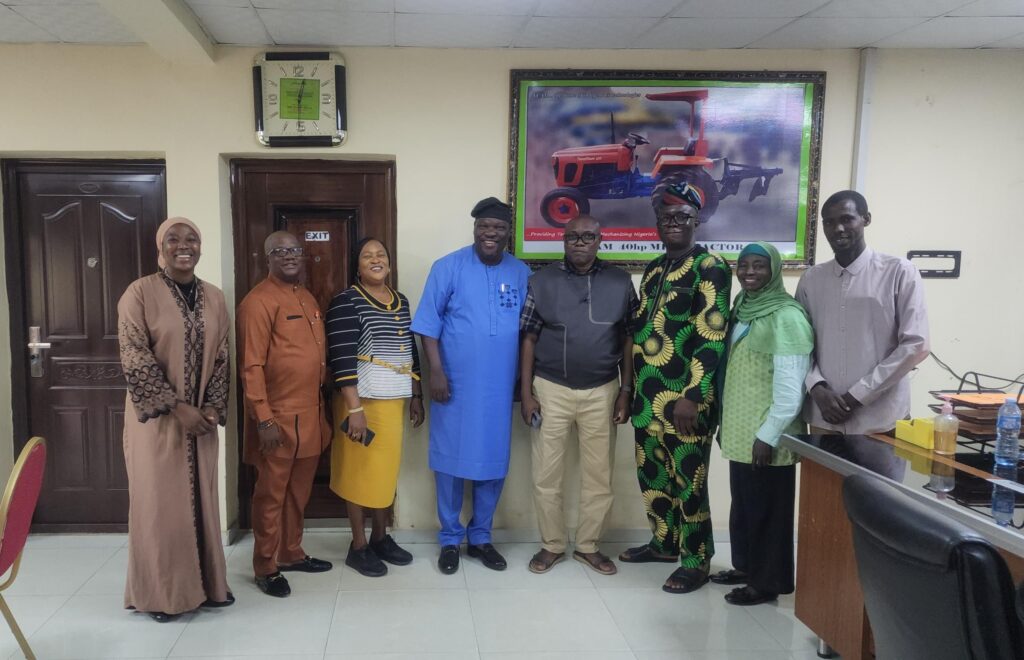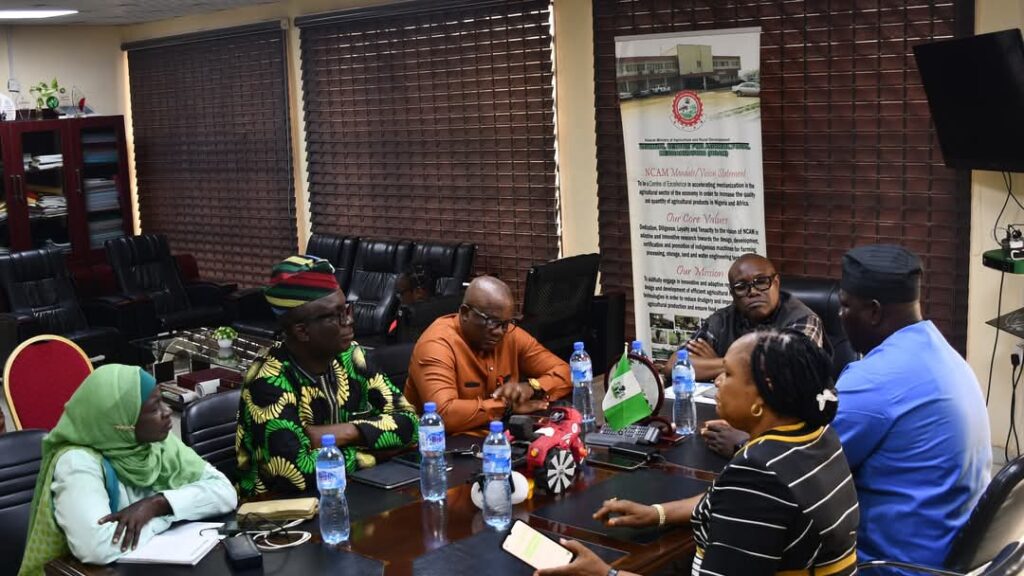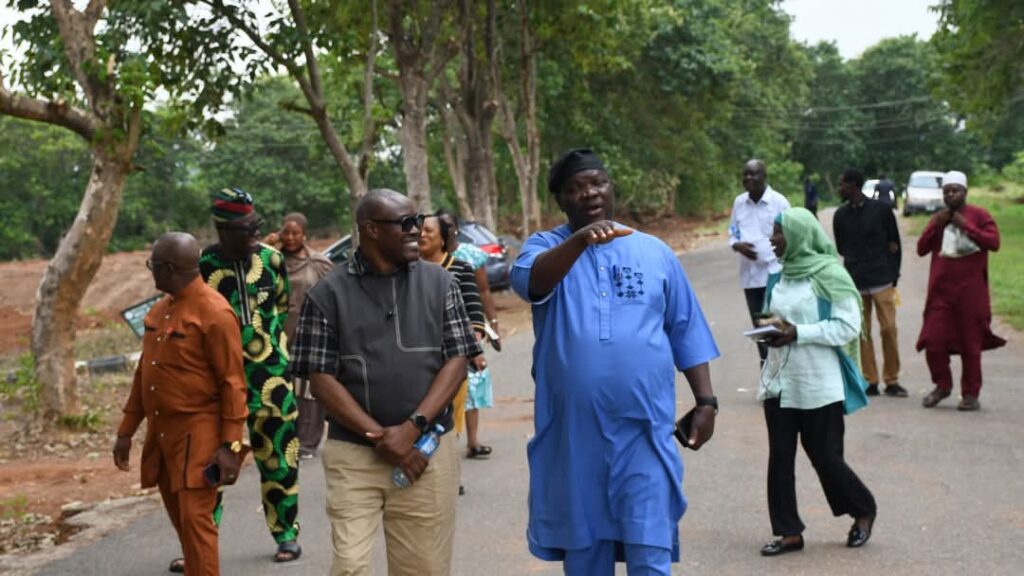The National Centre for Agricultural Mechanization (NCAM), Ilorin, on Monday, July 21, 2025, held a high-level strategic session with renowned academic and former Vice Chancellor of Landmark University, Engr. Prof. Adeniyi Olayanju, on the Centre’s engagement with the United Nations Sustainable Development Goals (SDGs).
The meeting, which took place at the Executive Director’s Office, brought together key figures within the Centre’s management to deliberate on aligning NCAM’s operations with global development goals and leveraging related opportunities for institutional growth.
Present at the meeting were the Executive Director, Engr. Dr. A. R. Kamal; Engr. Dr. Ozumba, Head of Agro-Industrial Development and Extension (AIDE); Engr. Dr. Ogunjirin, Head of Engineering and Scientific Services (ESS); Dr. Mrs. Oyeniyi, Head of General Services (GS); Engr. Dr. Yusuf Risikat; Mr. Olaife Taye Paul, Public Relations Officer; and the guest, Prof. Adeniyi Olayanju.
“NCAM Ready to Embrace SDG-driven Transformation” – ED
In his welcome remarks, the Executive Director, Engr. Dr. Kamal, described the visit as timely and significant, reiterating the Centre’s readiness to align its mandates and initiatives with the global framework of the SDGs.
He emphasized that NCAM is open to all progressive ideas and collaborations that will enhance the Centre’s visibility, improve operational efficiency, and open access to international grants and opportunities. “This move is vital for strengthening NCAM’s relevance and expanding our impact within the national and international development space,” he said.
“NCAM Is Part of My Journey” – Prof. Olayanju
Taking the floor, Prof. Olayanju expressed heartfelt appreciation to the Management and staff of NCAM, noting that the Centre holds a special place in his professional journey spanning over two decades.
He provided an insightful overview of the SDGs, explaining that the goals, which succeeded the Millennium Development Goals (MDGs), were adopted by the United Nations in September 2015 as part of the 2030 Agenda for Sustainable Development.
Prof. Olayanju further outlined eight key strategic areas for NCAM’s engagement which includes: Staff Sensitization, Proposal Development, Promotion of Gender Equality among others.
He also emphasized that the SDG framework touches four key areas – teaching, training, research, and stewardship/outreach, which are relevant to NCAM’s mandate:.
The 17 global goals were also highlighted, with special emphasis placed on NCAM’s alignment with Goal 2 (Zero Hunger), Goal 7 (Affordable and Clean Energy), Goal 9 (Industry, Innovation and Infrastructure), and Goal 13 (Climate Action).



